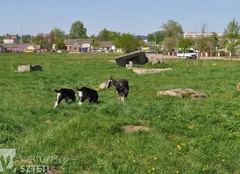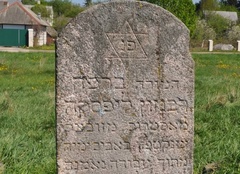Wolkowysk
Pronounced "Voh-ko-vihsk" (Belarussian: Ваўкавыск / Vawkavysk , Russian: Волковы́ск, Yiddish: וואלקאוויסק / Volkavisk, Hebrew: וולקוביסק)
The first recorded Jewish settlement in Wołkowysk existed in the mid-1500s. By the 1700s the Jewish population had reached about 1,200. A map from the time period shows a Jewish school across from the city hall.
In 1795 Wołkowysk was annexed by the Russian Empire. Jews faced a number of discriminatory policies under the new regime. For example, Jews had to pay extra taxes to wear their traditional clothing, and were forbidden from owning inns.
Despite these and other antisemitic measures, by 1834 the Jewish community of Wołkowysk included two houses of prayer, four cheders (Jewish elementary schools), one rabbi and one cantor (prayer leader). The first Belarussian-style Jewish school opened in 1854, but was controversial because some traditional Jews opposed teaching in Russian rather than the Jewish language of Yiddish.
During this time Wołkowysk was home to multiple religious groups. In 1882 the city council included 769 Catholics (43 percent), 760 Jews (42 percent), 243 Eastern Orthodox (13 percent), and 31 Lutherans (2 percent). Fifteen years later the approximately 5,500 Jews of Wołkowysk made up more than half of the town’s total population of 10,300.
By 1900 the community had added a wooden synagogue, Jewish cemetery and Jewish hospital to support its members. A Jewish theater, Maccabi sports club, and Jewish literary society followed soon after. However, many Jews began to emigrate in search of better economic opportunities abroad.
During World War I (1914-1918) Wołkowysk was occupied by the German army. Jews were subject to forced labor and faced severe food shortages. After the war Wołkowysk became part of the newly re-established country of Poland.
In the 1920s and 1930s the institutions of the Jewish community grew to include three synagogues, two cemeteries and about 10 Jewish schools. Jews could choose from three newspapers in Yiddish and two in Hebrew. Survivor Lissa Streusand recalled, “Wołkowysk was known for the rich Jewish tradition and the Jewish faith that it practiced.”
Antisemitic persecution escalated throughout the 1930s, leading many Jews to emigrate to places in North and South America. Survivor Naomi Warren remembered that as a teenager, “I started feeling the difference of attitudes of some of my friends because the influence of Germany was coming into Poland.” The owner of the town’s pharmacy led an antisemitic youth group and boycotts of Jewish shops were common. Streusand described how her father, a butcher, “was not permitted to kill for kosher,” adding that there were “heavy taxes put on Jewish people.”
In September 1939 Wołkowysk was invaded by the Soviet Union, followed by the Nazi occupation only two years later in June 1941. The town center, an area of high Jewish population, was heavily bombed. Jews were required to wear identifying badges on their clothing and were prohibited from using the sidewalk and going to the public market. Jews were forced to perform hard physical labor and from 1941 to 1943 about 4,000 Jews were executed in the forest. Anyone left alive by November 1942 was deported to the ghetto, where about 600 people died every day from starvation and disease. From December 1942 to January 1943 any remaining survivors were sent to Treblinka and Auschwitz.
After the war only about 25 Jews remained of the once-thriving community of 6,900. The rest of the Jewish community—40 percent of the town’s total population—had been murdered in the Holocaust.
Wolkowysk: Photographs & Artifacts
-
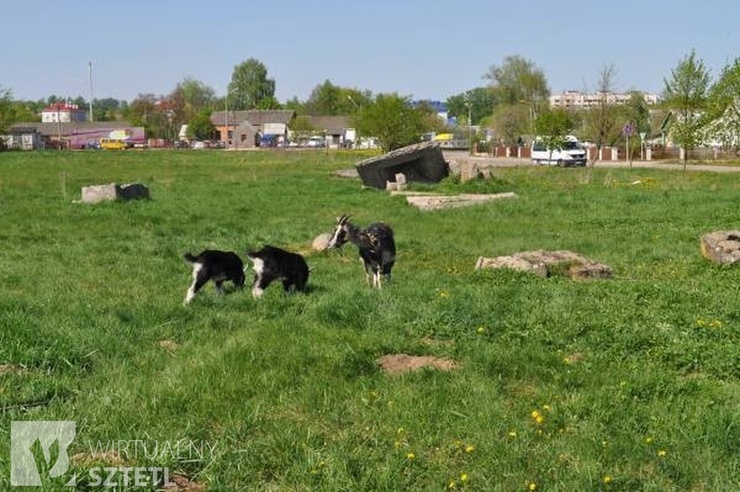 Goats now roam the field of the former Jewish cemetery of Wołkowysk, May 2011. Credit: sztetl.org.pl/Krzysztof Bielawski
Goats now roam the field of the former Jewish cemetery of Wołkowysk, May 2011. Credit: sztetl.org.pl/Krzysztof Bielawski -
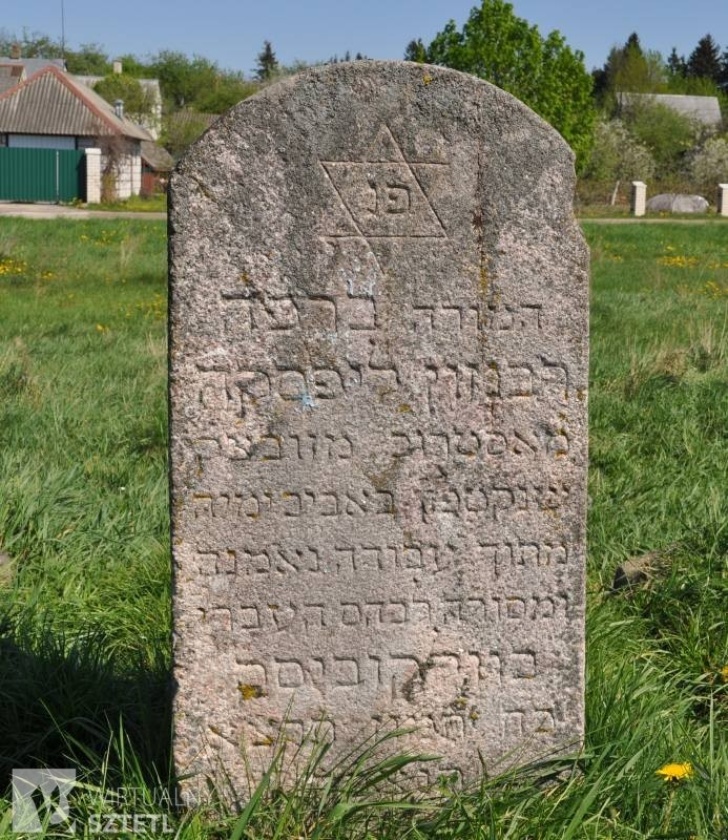 A gravestone in the former Jewish cemetery of Wołkowysk, May 2011. Credit: sztetl.org.pl/Krzysztof Bielawski
A gravestone in the former Jewish cemetery of Wołkowysk, May 2011. Credit: sztetl.org.pl/Krzysztof Bielawski
Destroyed Communities Memorial Slope
Wolkowysk: Survivors
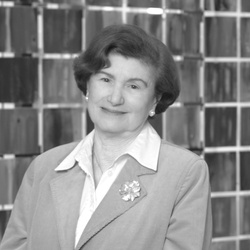
I knew we were going to a wonderful country, America, and I was very happy. But there was terrible fear inside of me for the people I was leaving behind.
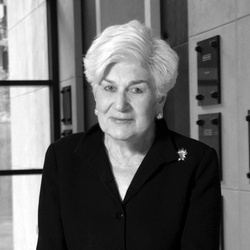
Friendships in camp were very important because you had to have a moral support system and we really supported each other very, very much. And sometimes we would tell jokes and sometimes we would laugh. You had to develop a certain defense system within you to be able to deal with all these problems. We were very scared.
